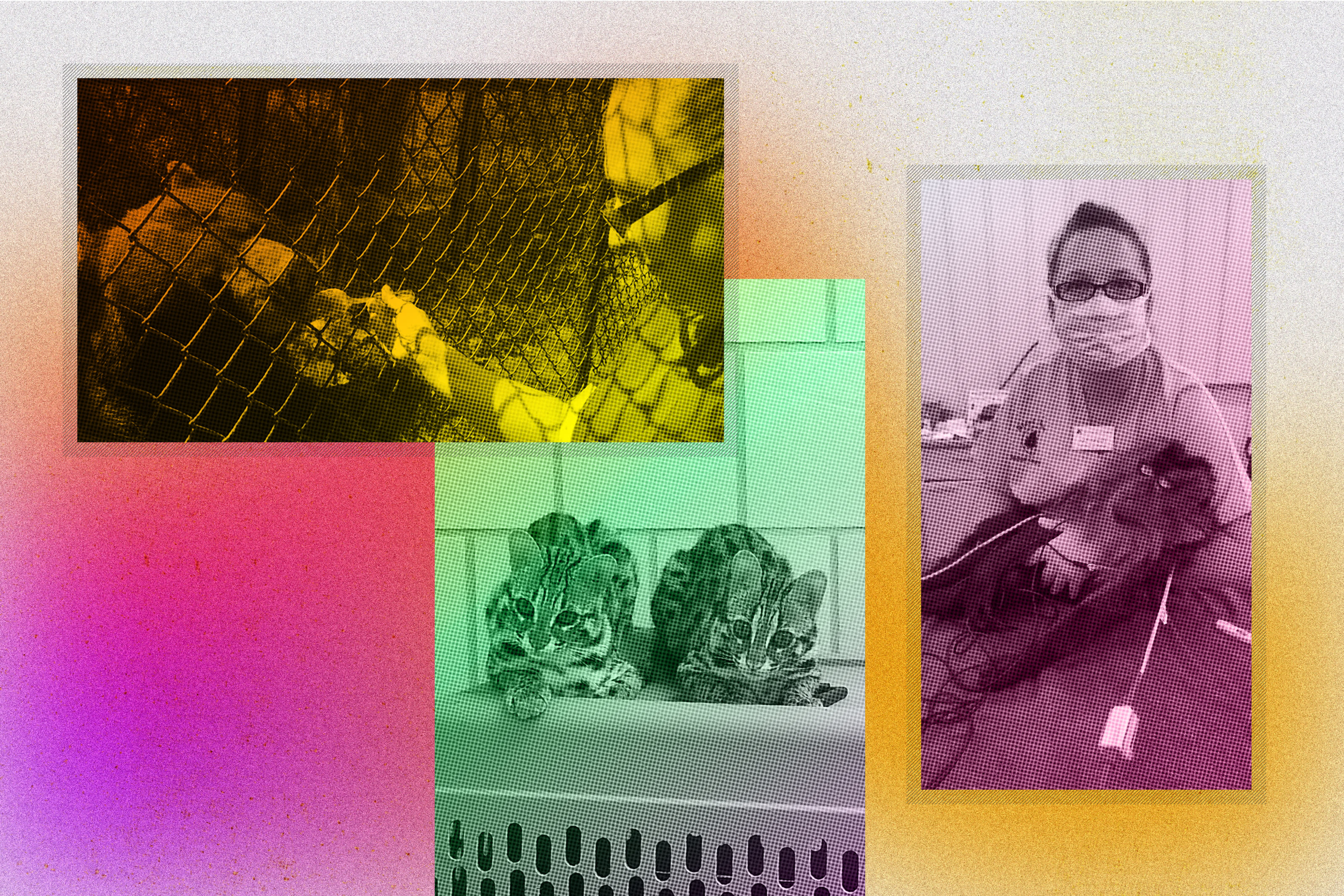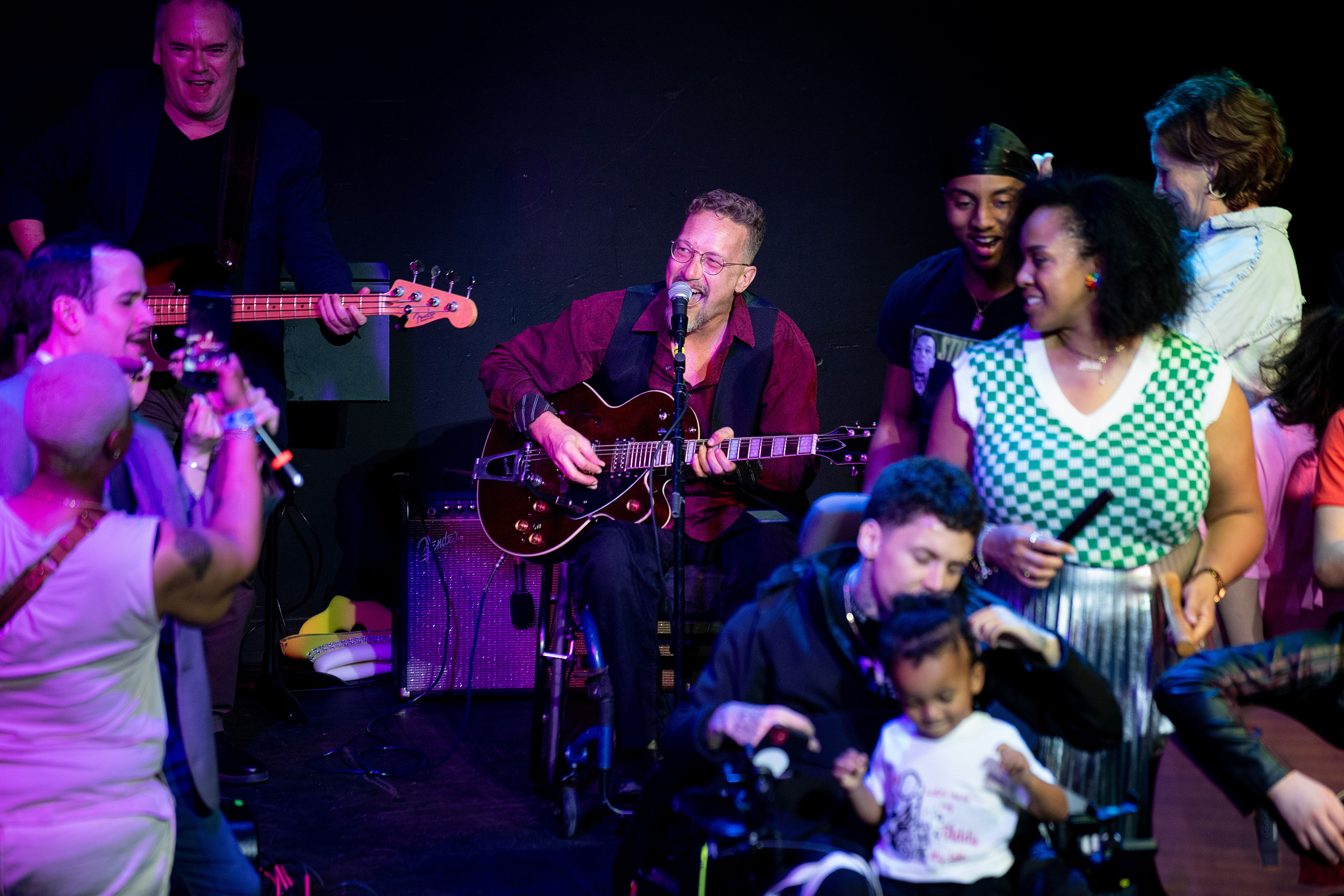Filmmaker Shahd Shahroor Tells Palestinian Stories on Her Own Terms

Image: Courtesy of Farah Mithani
Safed, Palestine. 1948. Eman, a young girl—age 10—sits beneath a gnarled olive tree with her mom. They nibble on taboon (flatbread) dipped in olive oil and scritch a puffy gray cat, clearly spoiled. In the shadows of ancient stones and gentle hills, mother and child play games and chat about family. And in the shadow of the Nakba’s violent beginnings, tragedy strikes.
Houston, Texas. 2024. Shams, a young woman, curls up on a bus stop bench with a book. The aptly named Karen concludes a stressful phone call and, after giving Shams’s keffiyeh a disgusted once-over, starts berating her as an antisemitic terrorist. Tired of the stereotypes, the lies, and the hate, Shams stands up for both herself and the Palestinian people.
Both Eman and Kufiya, which centers on the protagonist Shams, are the visions of filmmaker Shahd Shahroor of Honey Blackbird Films. Born in Palestine and raised in Houston, she began her directorial journey at 8 years old, when she started capturing home movies of birthday parties and other joyous events. From there, she advanced through her high school’s A/V club and eventually graduated from the filmmaking program at Houston Community College, emphasizing directing and writing.
“I’ve always been a movie lover. I love films, and I love how entertaining films can be and how much it brings joy to us, how much it actually just brings emotion to us, right?” Shahroor says. “Honestly, there’s so much that film has done for me, and it’s taken up very bored time and space in dark times… It’s also brought new and invigorating topics that I never knew about just because I watched a movie about it.”
She credits Sometimes in April as opening her eyes to the Rwandan genocide, for example.
“I like to do something that’s gut-wrenching and makes you feel something, so I’ve always loved being an audience member to films like that,” Shahroor says.
However, her tastes run far more eclectic than films meditating on some of the worst suffering humans can inflict on one another. Shahroor is also a massive comedy buff, particularly the Hangover series, and her current slate of projects includes Meet the 3amos, a lighthearted story about a British Muslim who sits down with two Palestinian men to ask for blessings to marry one of their daughters.
“I 100 percent believe it’s going to be funny. But the perfectionist side of me is like, ‘I want to keep making it amazing, amazing, amazing,’” she says. “But there has to be a point where you’re just like, ‘Okay, this is amazing. Leave it alone.’”

Image: Courtesy of Shahd Shahroor
Meet the 3amos marks a departure from Eman and Kufiya. Shahroor’s initial forays into professional filmmaking. Both shorts reflect the struggles found within both her experiences as a Palestinian Muslim and overarching Palestinian culture and history.
Eman was filmed while on a two-and-a-half-month trip to visit family back home in Palestine. She brought a five-page script along for the journey and cast her aunt as the mother and her cousins as Eman and her brother. The rest of Shahroor’s family assisted with location scouting for period-appropriate ovens and a suitable shade tree (originally fig in the script, but the growing season necessitated a switch to olive). She ran into some challenges with her recorder not properly picking up the necessary audio, but in the end created something truly remarkable.
“I wanted to bring justice to those kinds of stories. I didn’t want to depict any inaccurate representations or historic references. I didn’t want [Eman] to look modern. But I also had zero budget, right? It was literally what I had in front of me,” Shahroor says. “So I think with the resources we had, I’m very proud of how that film ended up. And I also just wanted the film to be very emotional.”
Though it takes place decades later, Kufiya picks up the threads of grief in Eman and winds them into a contemporary narrative about the daily indignities experienced by Palestinian Americans. Shahroor had to work on a budget so small it barely qualified as a budget at all, but she needed a much more experienced team to pull off what would prove to be two days’ worth of five-to-six-hour shoots.
“That was the first time I worked with a professional crew of people, because prior to that, I was always using family members and filming everything myself,” Shahroor says.
She initially reached out to a possible cinematography collaborator via Instagram. They weren’t able to participate, but still referred her to Imran Abbas, who was brought on to Kufiya as director of photography. From there, Shahroor was able to piece together a crew willing to work for free because they believed so passionately in the message of truth and anti-xenophobia she hoped to convey. The final film has screened at the River Oaks Theatre and Fifth Ward’s Deluxe Theater, as well as part of the ATX Short Film Festival, Falasteen Arts Festival, and Houston Cinema Arts Festival, where it received a standing ovation.
“This is the same kind of proud that I felt after filming Eman. There was that sense of joy after filming,” Shahroor says. “Postproduction time took a number of months because of some issues I had with sound, trying to figure that out. But once it was complete, it’s just enjoying the fruits of your labor.”
In addition to her filmmaking work, Shahroor cocreated the Muslim Filmmaker Mixer, which held its first two events at Haraz Coffee House and Stately Studio last year. Kufiya screened here first, before officially pulling up to the starting line of its film festival circuit. These meetups bring together Muslim film professionals from across the Houston area to showcase their projects, host Q&As, and get to know one another better. About 20 to 30 people have shown up to each event so far, which Shahroor appreciates because of how easy it is to make time to speak to everyone. That’s not something she’s able to do at many other industry mixers, due to either the crowds or the content.
“I wanted to create [the Muslim Filmmaker Mixer] because I’ve been at that end of the rope where I feel like everything that I’m seeing is not something that I can work on,” Shahroor says. “I’m an unapologetic Muslim filmmaker. But because of that, I have a lot of religious beliefs I hold dear to me that, when I’m in the film industry field, there’s so many roles or work positions or stories that I steer away from because I know that it’s not something that aligns with my values.”

Image: Courtesy of Shahd Shahroor
And she’ll continue to craft her own works reflecting her own perspectives. Along with Meet the 3amos, Shahroor is also working on Keep Breathing, a short inspired by her own experiences as a cystic fibrosis patient who underwent a double lung transplant in 2019. The story centers on the emotions the lead feels between the time she receives the diagnosis to when she’s rolled into the operating room.
She also hopes to expand Eman into a full-length feature. It was originally shot in 2022 and released in 2023, before the current wave of extreme violence against Palestinians. To her, the land and its history are just as much a part of the short as the characters that inhabit it. Filming on location is critical.
“People tell me that they’ve cried after watching Eman,” she says. “I get ecstatic, which you normally wouldn’t get but it means that I’ve done my job as a writer, as a storyteller, to bring this character and this story to life.”
At this point in Shahroor’s career, “life” forms the core of every narrative she shares. From the slice-of-life-turned-tragedy of Eman to the confrontational truth telling in Kufiya to the family comedy in Meet the 3amos, she tells honest, straightforward tales about what it’s like to be Palestinian, Muslim, and American all at once.
“I know I’m creating something that could be sensitive for people, even though as a Palestinian, there’s nothing to me when I created it that made it feel political,” Shahroor says. “You would expect that from this kind of film, but unfortunately, again, because of the state of the world, people think anything that has to do with Palestine has to do with politics, but it’s really just a people who are trying to survive and be liberated.”




